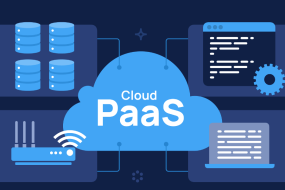
In the ever-evolving landscape of cloud hosting and edge computing, a groundbreaking solution has emerged, reshaping the way we approach data storage and processing. Enter the world of Decentralized Cloud Hosting with Containerization, a paradigm shift that offers unparalleled flexibility, security, and scalability for businesses and individuals alike.
The Evolution of Cloud Hosting
To truly appreciate the significance of decentralized cloud hosting with containerization, we must first understand the evolution of cloud hosting. Traditional cloud infrastructure centralized data in remote data centers, leading to concerns about latency, data privacy, and security.
The Power of Containerization
Containerization technology, on the other hand, has emerged as a powerful solution. Containers allow applications and their dependencies to be packaged together, ensuring consistent performance across different environments. This innovative approach has revolutionized the deployment and management of software, making it more efficient and user-friendly.
Decentralization: A Game-Changer
The key to this breakthrough lies in the concept of decentralization. Rather than relying on a single, monolithic data center, decentralized cloud hosting spreads data across a network of nodes. This not only reduces latency but also enhances data security by eliminating single points of failure.
Benefits of Decentralized Cloud Hosting
Enhanced Security
Decentralization minimizes the risk of data breaches. With data distributed across numerous nodes, compromising the entire system becomes extremely challenging for malicious actors.
Improved Scalability
Scalability is a breeze with decentralized cloud hosting. You can easily add or remove nodes to accommodate changing storage and processing needs.
Reduced Latency
Lower latency is a significant advantage for applications that require real-time data processing. Users experience faster response times, making the user experience seamless.
Cost-Efficiency
Traditional cloud hosting models can be expensive. Decentralized cloud hosting can provide cost savings, especially for businesses with fluctuating storage and processing needs.
Container-based Cloud Hosting: A Winning Combination
When containerization technology is integrated with decentralized cloud hosting, the result is a powerful combination. Containers are the ideal solution for deploying applications in a decentralized environment. They offer portability, ensuring your applications run consistently across all nodes.
Use Cases for Container-based Cloud Hosting
Edge Computing
Edge computing is all about processing data closer to the source, reducing latency, and enhancing the efficiency of applications such as IoT devices, autonomous vehicles, and smart cities.
Content Delivery
Deliver content faster and more efficiently by distributing it across multiple edge locations. Container-based cloud hosting ensures smooth content delivery with minimal delays.
Disaster Recovery
Decentralization combined with containerization ensures data redundancy and disaster recovery solutions that are both reliable and swift.
Final Words
In a world where data is the lifeblood of modern businesses, decentralized cloud hosting with containerization offers a seismic shift in how we store and process information. The benefits are clear: enhanced security, improved scalability, reduced latency, and cost-efficiency. When combined with containerization, this solution becomes a game-changer, with applications across edge computing, content delivery, and disaster recovery. It’s time to embrace the future of cloud hosting.
Commonly Asked Questions
Q1: How does decentralized cloud hosting enhance security?
Decentralized cloud hosting spreads data across multiple nodes, making it exceedingly difficult for attackers to compromise the entire system. It’s a robust security measure.
Q2: What are the cost advantages of container-based cloud hosting?
Container-based cloud hosting offers cost-efficiency by allowing you to scale resources up or down as needed, reducing unnecessary expenses.
Q3: Can I use container-based cloud hosting for my small business?
Absolutely. Container-based cloud hosting is scalable and can be tailored to meet the needs of businesses of all sizes.
Q4: How does containerization improve application deployment?
Containerization ensures that your applications run consistently across various environments, making deployment more efficient.
Q5: What is the role of edge computing in decentralized cloud hosting?
Edge computing allows for real-time data processing, reducing latency and enhancing the performance of applications that require immediate responses.
Advertisement







